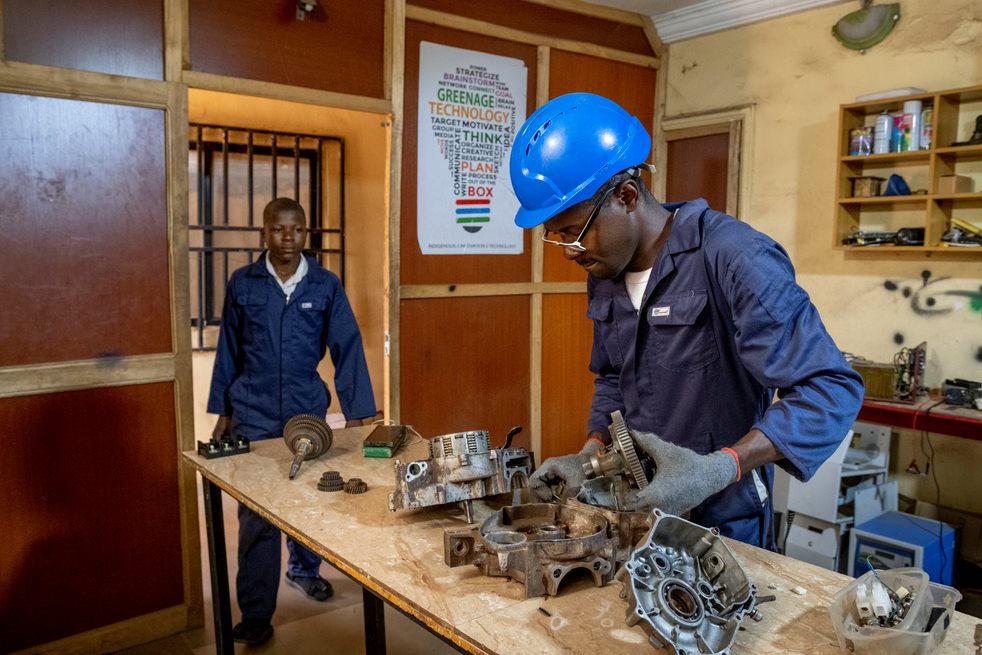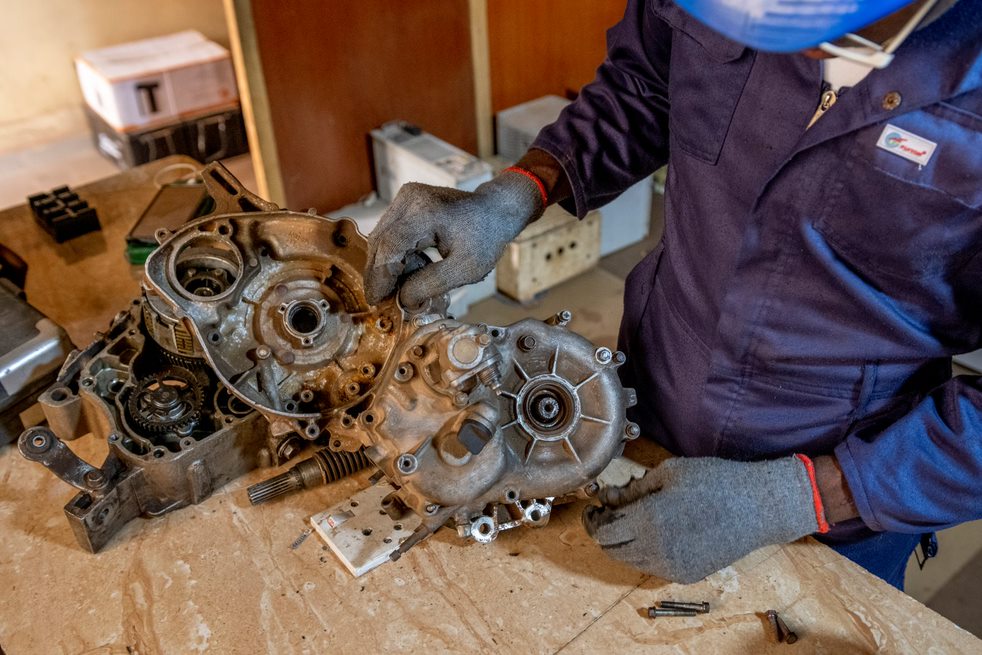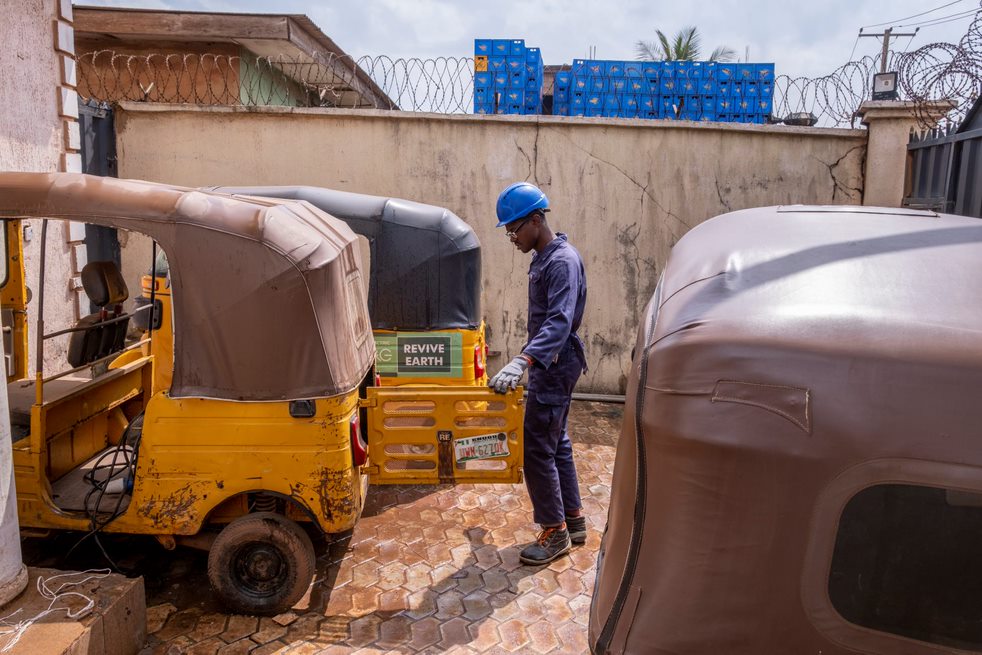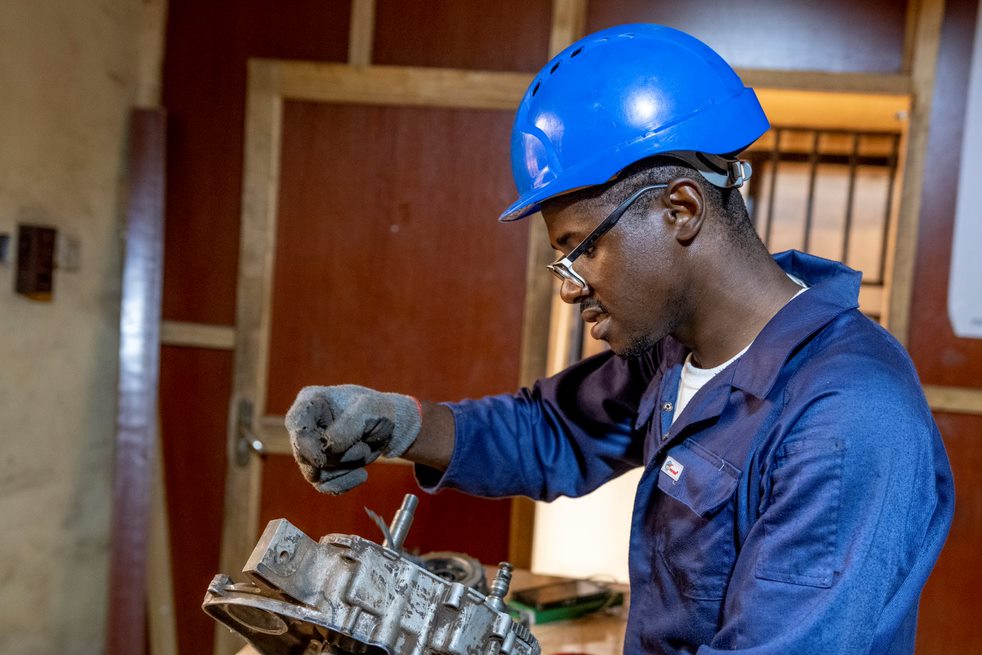Nigerian electrical engineer Chukwuemeka Eze developed the Electric Mobility retrofit kit which includes lithium-ion batteries, an AC induction motor, a retrofit shaft and an electronic controller, that acts as the inverter.
Eze and his team study the engines of different motorbikes and then develop specifications to adjust the gears and replace part of the engine with an electric motor. Redundant parts are removed, the battery is fixed to the bike’s chassis and the vehicle is repainted.
The new battery connects to the motor through the controller, which interfaces through a sensor to the hand throttle to determine how fast to run the motor. The motor connects to the wheels through a differential gear reduction transmission. A direct current converter adapts the battery voltage to power the vehicle’s auxiliary systems.
Two other sensors monitor the vehicle’s GPS system, as well as the battery’s state of charge and voltage. These are monitored through an Internet of Things interface. The controller, direct current converter, battery pack and electric motor are manufactured by Eze and his team. Sensors monitor the vehicle’s battery life, engine performance, motor temperature and maintenance requirements, which are then displayed on the vehicle’s dashboard.
The batteries can be recharged using any 13A or 15A wall socket, and run for up to eight hours on a single charge for an average load of 320 kilograms. A vehicle-to-home integration can provide power to charge devices in off-grid homes or during power failures, essentially functioning as a mobile electric generator.
Electric Mobility is offered for sale, as well as for sale through hire purchase due to the high price of electric motors. The retrofitting process replaces the gear lever with a switch allowing for forward and backward movement, contributing to a reduction in noise pollution and providing a smoother driving experience. Eze hopes to improve Electric Mobility by encasing their systems in watertight plastic to seal the electronics from high humidity and rain.

“With surging fuel prices in Africa, Electric Mobility aims to be part of the solution. Too many drivers are spending over 60% of their revenue on petrol and maintenance; we aim to deliver an affordable and sustainable transport system which is environmentally friendly.”
Chukwuemeka Eze




